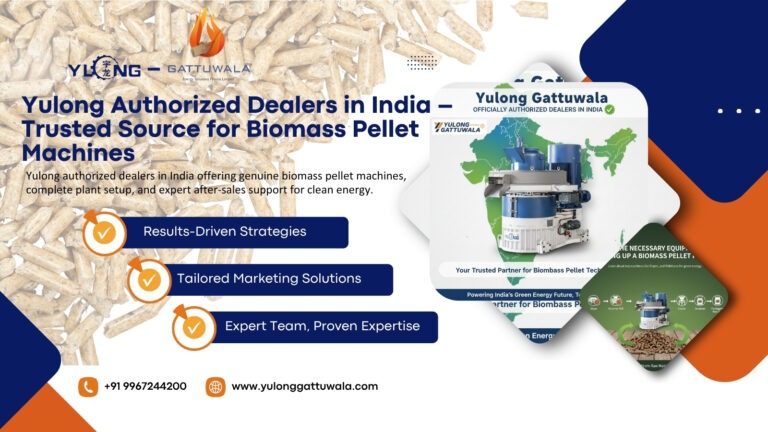- November 8, 2025

The global shift toward sustainable and renewable energy has placed biomass pellets at the center of green energy solutions. In India, where agricultural waste is abundantly available, setting up a biomass pellet manufacturing business can be both profitable and environmentally impactful. Biomass pellets are clean, efficient, and in high demand across power plants, industries, and heating systems. This article explains how to start your own biomass pellet business in India and why it’s one of the most promising ventures in 2025.
Biomass pellets are made by compressing agricultural residues such as rice husk, sugarcane bagasse, sawdust, or wheat straw into small, dense energy pellets. These pellets burn cleaner than coal and are widely used in biomass-based power generation.
The Government of India, through the Ministry of New and Renewable Energy (MNRE) and initiatives like NTPC’s Biomass Co-firing Program, encourages the use of biomass pellets to reduce dependence on fossil fuels. This policy support, combined with rising energy demand, makes the biomass sector a high-growth opportunity.
Location is key to success. The best areas for biomass pellet manufacturing are regions with high agricultural activity, such as:
• Punjab, Haryana, Uttar Pradesh, and Madhya Pradesh – for paddy and wheat straw.
• Maharashtra and Karnataka – for sugarcane bagasse.
• Gujarat and Tamil Nadu – for sawdust and wood waste.
Setting up your plant close to raw material sources will minimize logistics costs and ensure a steady supply chain.
A complete biomass pellet plant setup includes several key machines:
- Chipper Machine – Cuts raw waste into smaller pieces.
- Hammer Mill – Grinds biomass into fine powder.
- Dryer – Reduces moisture content to optimal levels.
- Pellet Machine (Pellet Mill) – Compresses the biomass into uniform pellets.
- Cooler and Packing Unit – Ensures pellet quality and packaging for market delivery.
Leading manufacturers like Yulong-Gattuwala Energy supply complete pellet production lines that range from 1 ton/hour to 15 tons/hour, ensuring high output with energy efficiency.
The cost of setting up a biomass pellet manufacturing plant depends on capacity and automation.
• Capital subsidies for biomass plant installation.
• Low-interest loans for renewable energy startups.
• Support under NTPC’s biomass co-firing policy, which ensures large-scale pellet demand.
By registering under MSME or Startup India, entrepreneurs can also avail additional financial benefits.
The MNRE and State Renewable Energy Departments offer various subsidies and incentives:
• Small-scale unit (1–2 TPH): ₹15–25 lakh
• Medium-scale unit (5–10 TPH): ₹40 lakh–₹1 crore
• Large-scale plant (15+ TPH): ₹1.5–₹2 crore
Profit margins depend on raw material cost, pellet selling price, and operational efficiency. With growing industrial demand and biomass power projects, most entrepreneurs achieve ROI within 2–3 years.
Starting a biomass pellet manufacturing business in India is a sustainable way to earn profit while contributing to the country’s renewable energy goals. With abundant agro waste, supportive government policies, and advanced machinery from Yulong-Gattuwala, India’s biomass industry is set to thrive in 2025 and beyond.
📞 Interested in setting up a biomass pellet plant in India? Contact Gattuwala Energy for expert consultation, equipment, and government subsidy support.

Pellet Machine Authorized Dealer in India

Yulong Authorized Dealers in India Contact Number



Ahrefs.Com Backlink Checker
December 13, 2025Just wanna remark on few general things, The website layout is perfect, the written content is really superb : D.